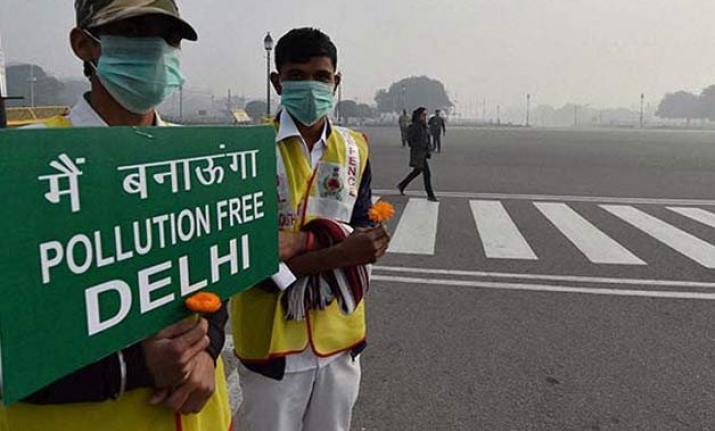SC raps Delhi govt on odd-even; says phase out Punjab paddy, ‘don’t want desert’

SC raps Delhi govt on odd-even; says phase out Punjab paddy, ‘don’t want desert’
The Supreme Court criticized the Delhi government for its statement that it would finalize the odd-even policy after the court’s order. In a strongly worded rejoinder, the court observed that the government was attempting to shift the burden onto the court and urged it not to evade responsibilities. The court emphasized that the government should implement the odd-even scheme, even if its impact is minimal, to address pollution issues, cautioning against attributing pollution solely to the court’s orders.
This exchange reflects the court’s insistence on the government taking proactive measures to address environmental concerns, rather than relying on court orders as a sole determinant for policy implementation.
The statement by Delhi Environment Minister Gopal Rai indicates a directive to the transport department to ban app-based taxis in compliance with the orders of the court. The motivation behind this move appears to be a concern raised by the Supreme Court about a substantial number of taxis, registered in other states, operating in Delhi with only one passenger. This observation implies that there might be an issue with vehicles from outside the city contributing to traffic congestion or not adhering to certain regulations.
However, the implementation timeline of this ban seems to be uncertain as officials have mentioned that a detailed order will be provided, specifying whether it will take effect during the week or in conjunction with the odd-even scheme. The odd-even scheme is a traffic rationing measure wherein vehicles with license plates ending in odd and even numbers are allowed to ply on alternate days, aimed at reducing air pollution in the city.

The Supreme Court’s directive on stopping farm fires and improving air quality demonstrates a significant concern for environmental issues, particularly in the context of agricultural practices contributing to air pollution. The court’s emphasis on halting farm fires suggests a recognition of the role that agricultural activities, such as stubble burning, might play in degrading air quality.
The court’s mention of the decreasing water table in Punjab and the need for the phasing out of paddy highlights the broader environmental challenges faced by the region. The cultivation of water-intensive crops like paddy can contribute to a decline in the water table, leading to concerns about long-term environmental sustainability. The court’s stance reflects an awareness of the need to balance agricultural practices with environmental conservation to prevent adverse consequences such as desertification.

Simultaneously, the National Green Tribunal’s criticism of the Punjab Pollution Control Board underscores the importance of regulatory bodies in addressing and mitigating environmental issues. The specific mention of the pollution problem in the state indicates that there may be lapses or inadequacies in the measures taken to control pollution, prompting regulatory scrutiny.
Overall, these statements from the Supreme Court and the National Green Tribunal indicate a concerted effort to address environmental concerns in Punjab, encompassing issues related to air quality, water table depletion, and pollution control. It suggests a call for comprehensive measures and increased regulatory effectiveness to ensure sustainable development in the region.
The Supreme Court’s questioning about improvements and its directive for the government to engage with farmers’ bodies indicate a sense of urgency and concern over the persistent environmental issues. The reference to the impact of rain in bringing down pollution levels in the national capital highlights the immediate influence of weather conditions on air quality. However, this may be a temporary relief rather than a sustainable solution.
The Court’s instruction to engage with farmers’ bodies and motivate them to phase out paddy suggests a recognition that addressing the root causes of pollution, particularly related to agricultural practices such as stubble burning, is crucial. This approach aligns with the need for long-term, systemic changes to improve air quality and environmental conditions.
The mention of cities in Punjab being engulfed in smoke underscores the broader regional implications of the environmental challenges faced by the state. It implies that pollution concerns are not limited to the national capital but extend to other urban areas in Punjab, emphasizing the need for a comprehensive and collaborative approach to address these issues.
In summary, the Supreme Court’s statements reflect a call for immediate action to reduce pollution levels, acknowledgment of regional challenges, and a focus on engaging stakeholders, particularly farmers, to implement sustainable solutions.






